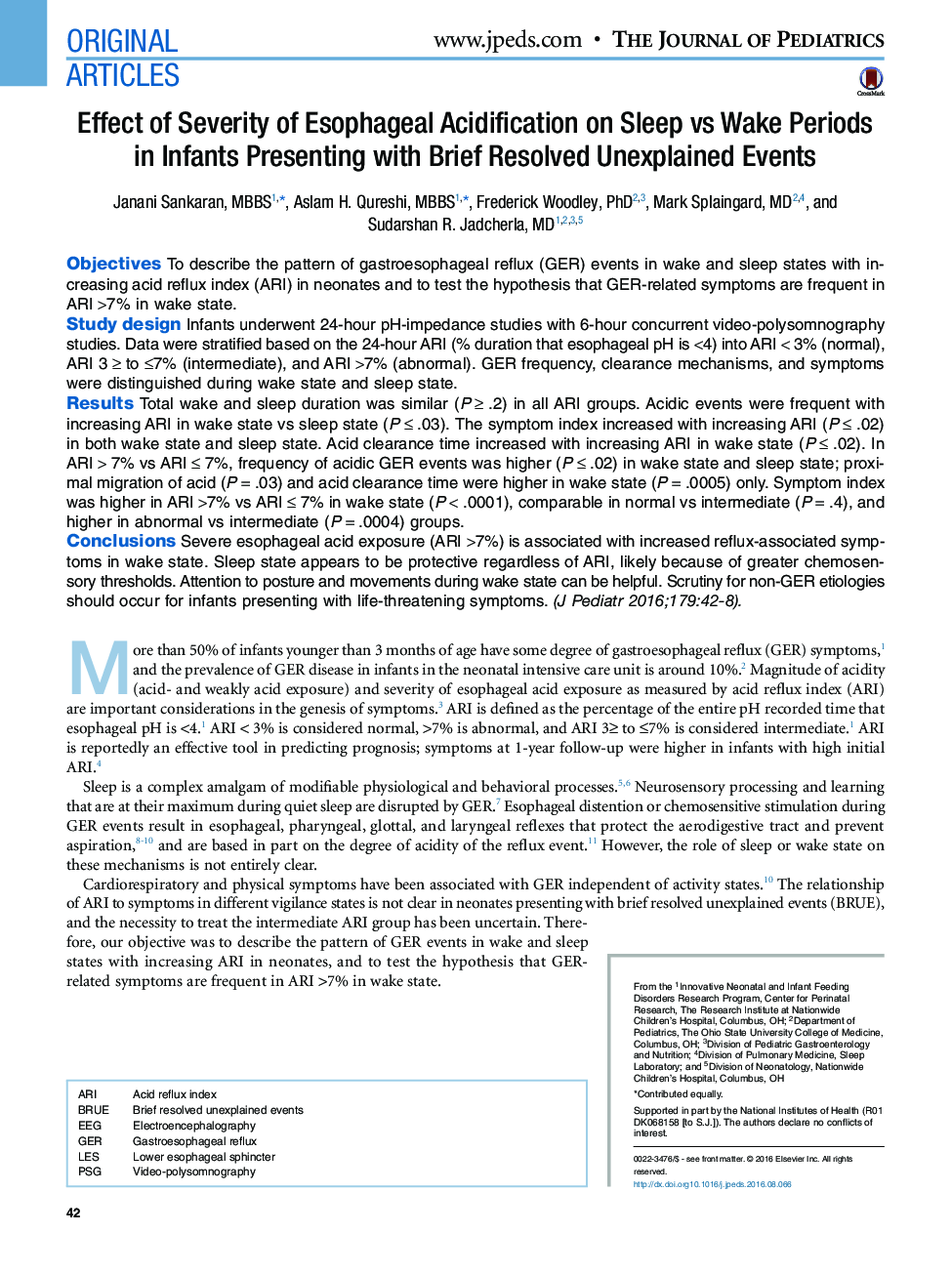| کد مقاله | کد نشریه | سال انتشار | مقاله انگلیسی | نسخه تمام متن |
|---|---|---|---|---|
| 5719506 | 1607421 | 2016 | 8 صفحه PDF | دانلود رایگان |
ObjectivesTo describe the pattern of gastroesophageal reflux (GER) events in wake and sleep states with increasing acid reflux index (ARI) in neonates and to test the hypothesis that GER-related symptoms are frequent in ARIâ>7% in wake state.Study designInfants underwent 24-hour pH-impedance studies with 6-hour concurrent video-polysomnography studies. Data were stratified based on the 24-hour ARI (% duration that esophageal pH is <4) into ARIâ<â3% (normal), ARI 3ââ¥âto â¤7% (intermediate), and ARIâ>7% (abnormal). GER frequency, clearance mechanisms, and symptoms were distinguished during wake state and sleep state.ResultsTotal wake and sleep duration was similar (Pââ¥â.2) in all ARI groups. Acidic events were frequent with increasing ARI in wake state vs sleep state (Pââ¤â.03). The symptom index increased with increasing ARI (Pââ¤â.02) in both wake state and sleep state. Acid clearance time increased with increasing ARI in wake state (Pââ¤â.02). In ARIâ>â7% vs ARIââ¤â7%, frequency of acidic GER events was higher (Pââ¤â.02) in wake state and sleep state; proximal migration of acid (Pâ=â.03) and acid clearance time were higher in wake state (Pâ=â.0005) only. Symptom index was higher in ARIâ>7% vs ARIââ¤â7% in wake state (Pâ<â.0001), comparable in normal vs intermediate (Pâ=â.4), and higher in abnormal vs intermediate (Pâ=â.0004) groups.ConclusionsSevere esophageal acid exposure (ARIâ>7%) is associated with increased reflux-associated symptoms in wake state. Sleep state appears to be protective regardless of ARI, likely because of greater chemosensory thresholds. Attention to posture and movements during wake state can be helpful. Scrutiny for non-GER etiologies should occur for infants presenting with life-threatening symptoms.
Journal: The Journal of Pediatrics - Volume 179, December 2016, Pages 42-48.e1
